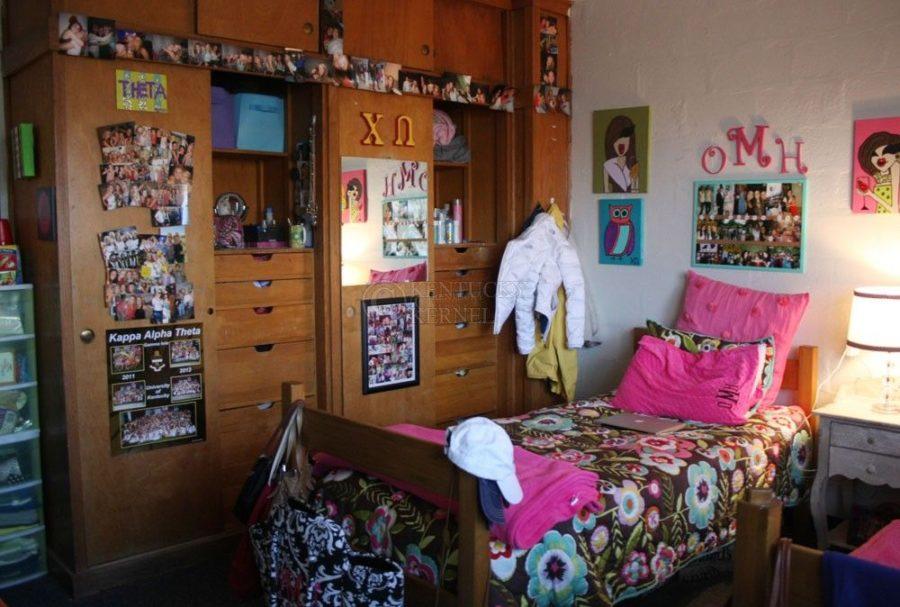Making UK housing a better home away from home
February 9, 2012
The residence hall lobbies are welcoming and the bathrooms are pristine. Rooms have movable furniture and tile floors, the common areas have flat screens, and the laundry facilities have plenty of washers and dryers.
This is the campus of Western Kentucky University with privatized housing, which could be an indication of what UK would look like if it decides to privatize its own housing.
Privatizing housing would mean UK would turn all of its dorms over to a private company to rebuild and manage the buildings, said Angie Martin, UK’s vice president of financial operations and treasurer. Turning over housing would mean nicer dorms for students.
“Our students need better housing,” Martin said.
Before 2006, the last dorm built at UK was in 1966, she said, adding that privatizing housing could be a “game changer” for the university.
Change for the better elsewhere
Privatized housing has worked for WKU, said Brian Kuster, executive director of the WKU Student Life Foundation and director of housing and residence life.
The Student Life Foundation is a nonprofit organization that owns the university’s housing.
WKU started the process of privatizing housing in 1999, by creating the foundation to oversee its housing, Kuster said.
The nonprofit allows housing to be separate from the university but also serve the university’s housing needs, he said.
WKU currently has 17 residence halls, and they all have been renovated within the past 12 years.
Kuster said when the first dorm was redone, students camped out to register to live there.
One reason to privatize housing at WKU was to be able to better serve students’ wants and needs, Kuster said, citing movable furniture and tile floors as two highly requested updates.
“You can’t take your students for granted,” Kuster said.
Related link: Kernel Editorial: Privatized housing would benefit UK
He said redoing the dorms also kept more upperclassmen on campus because they could find a style of living that better fit
their needs.
WKU currently offers three different types of housing: traditional two-person rooms with common baths, suites with shared bathrooms and rooms with private bathrooms. WKU will open its first on-campus apartments this fall.
Kuster said the feeling of campus changed once the renovations began to take place, especially after a road that cut through campus was taken out and replaced with a walking path.
“It still feels like a small campus,” Kuster said, even though WKU has around 20,000 students.
Since the money for housing is generated by students, the nonprofit organization actually makes about $3 million a year,
Kuster said, which is just turned back over to students to offer more amenities, like free copies of USA Today in all the residence hall lobbies, and for future renovations.
On the whole, Kuster said privatizing WKU’s housing has been beneficial for students and the campus.
“It’s definitely worked well for us,” he said.



























































































































































